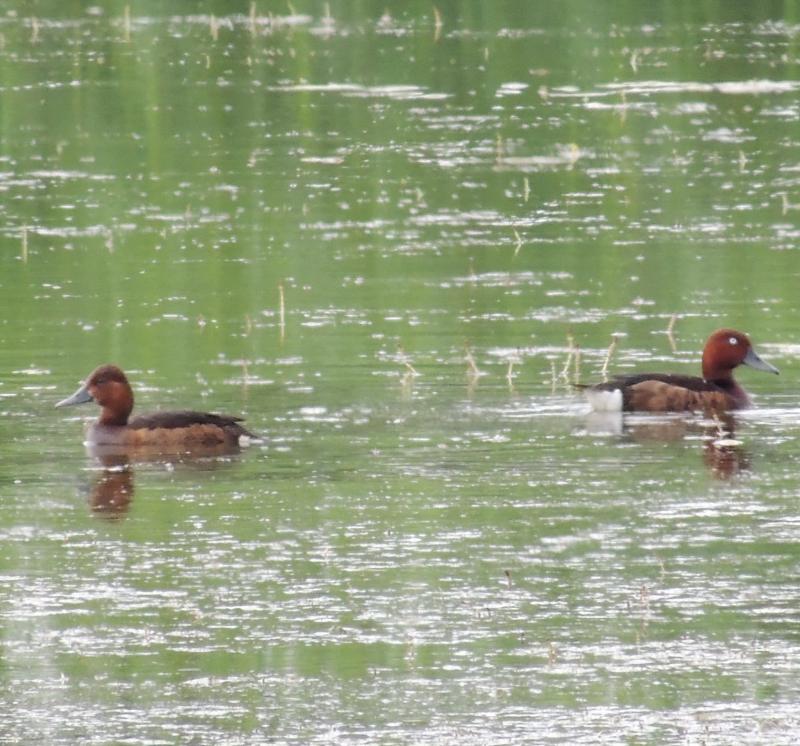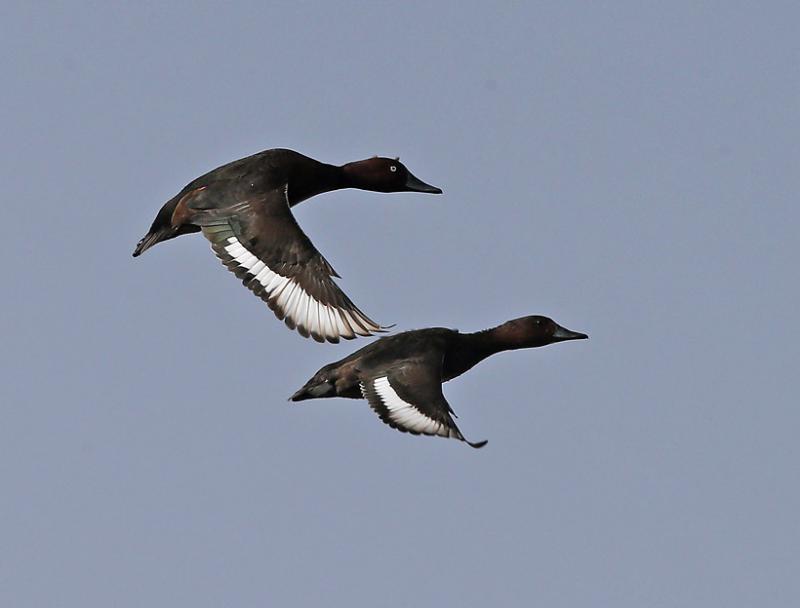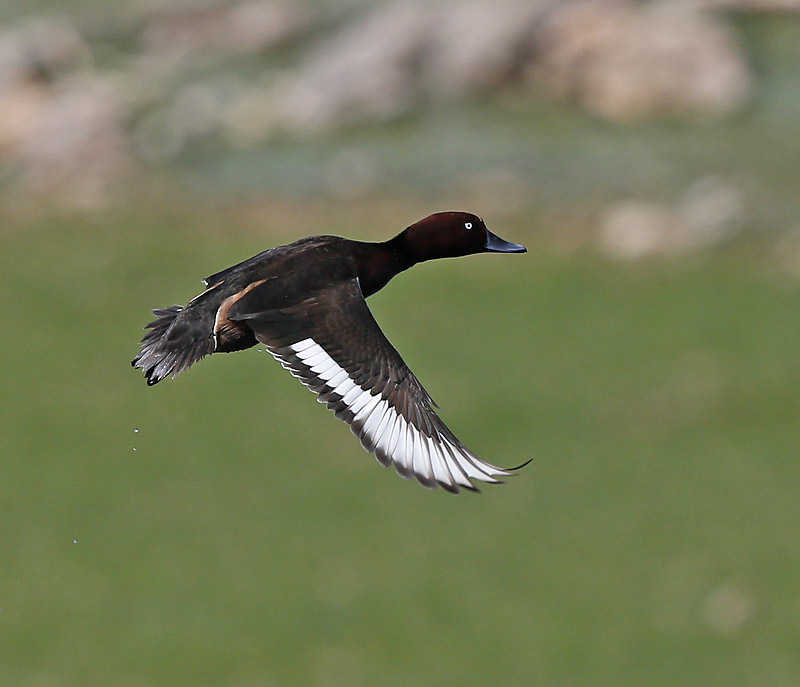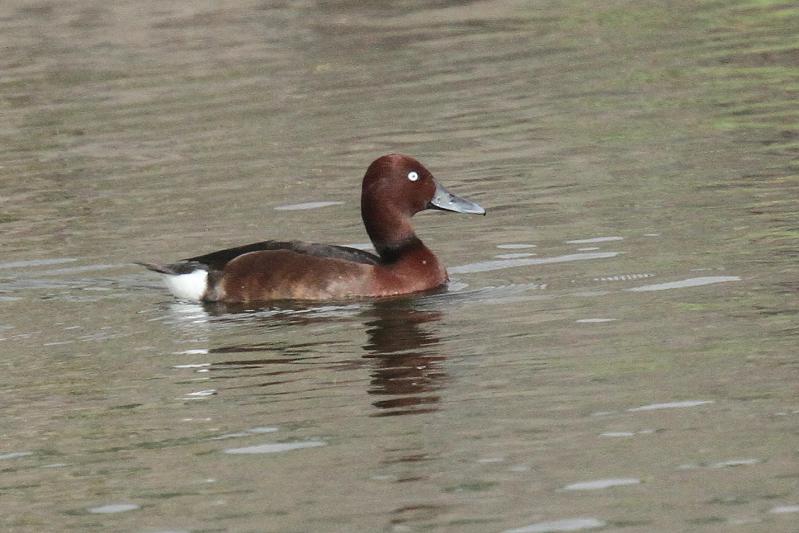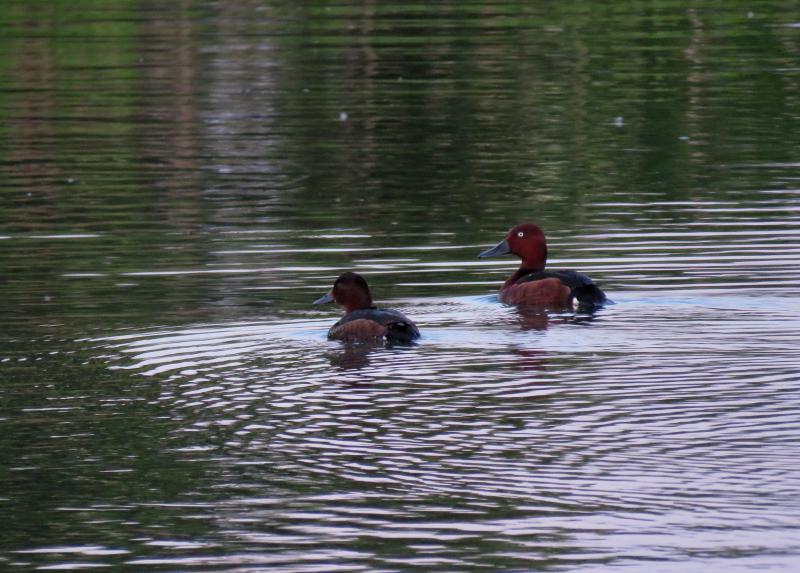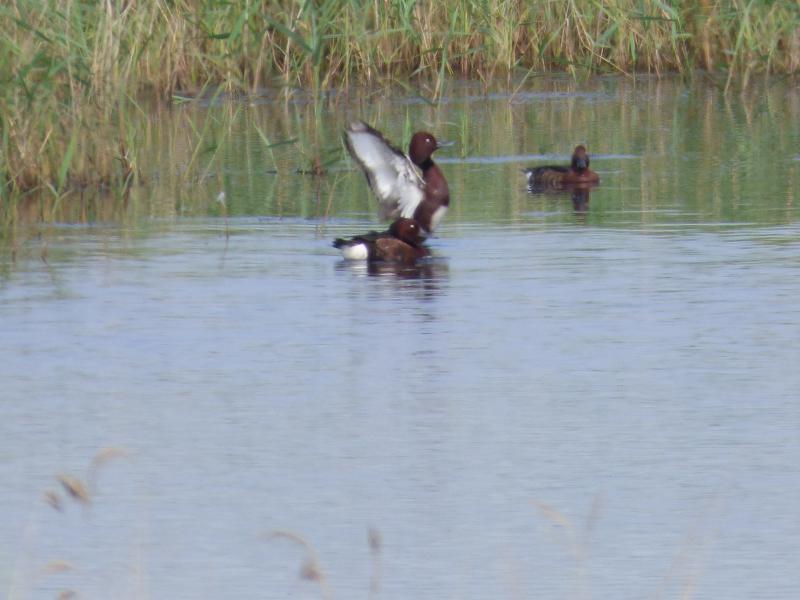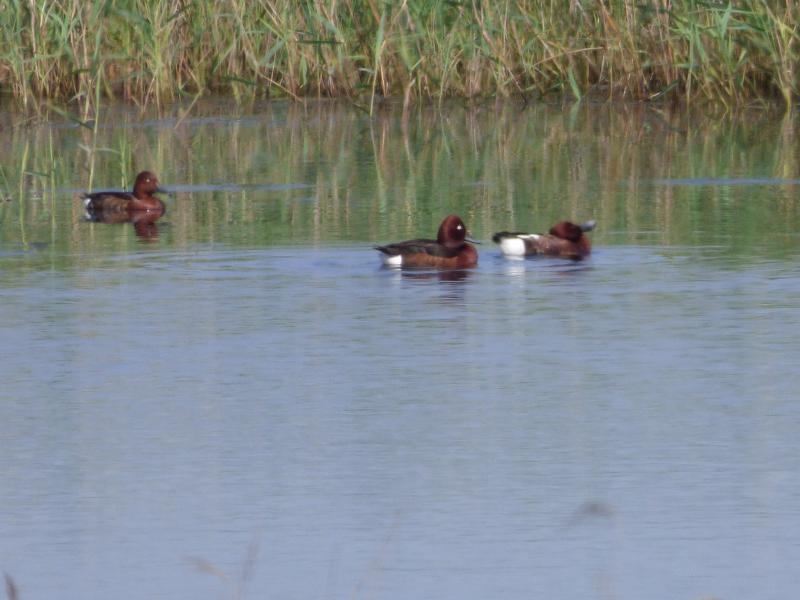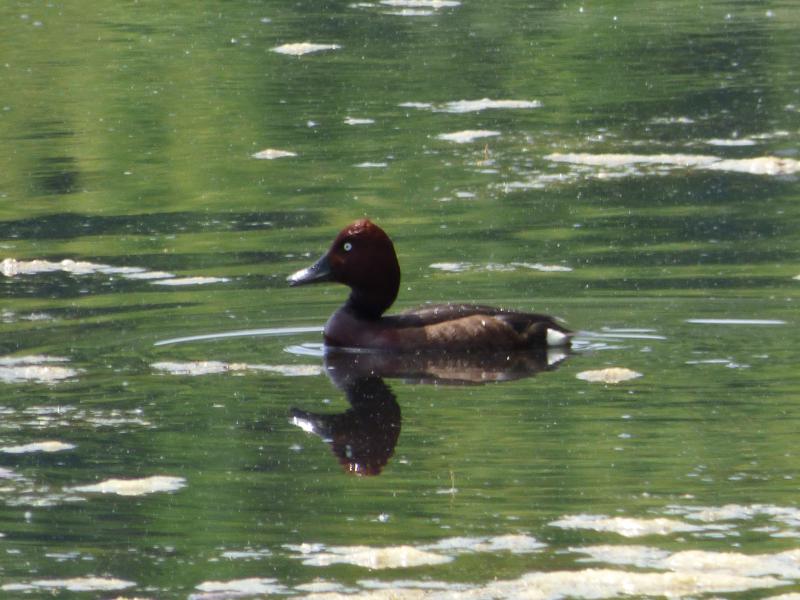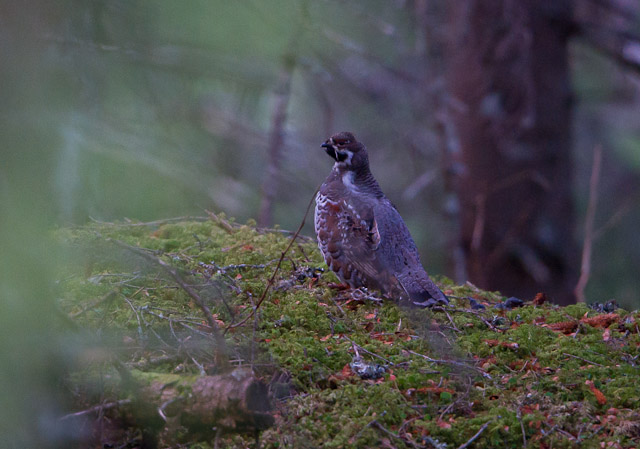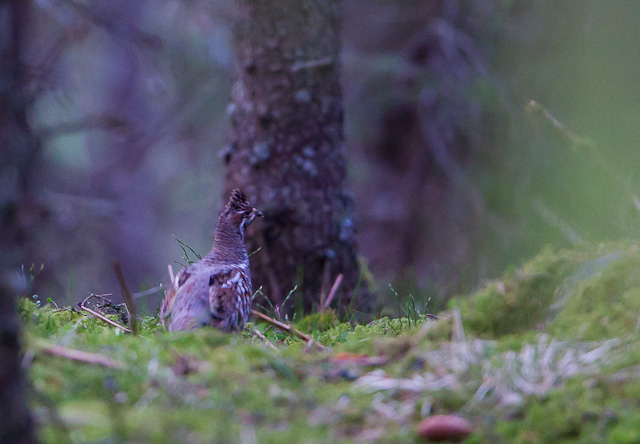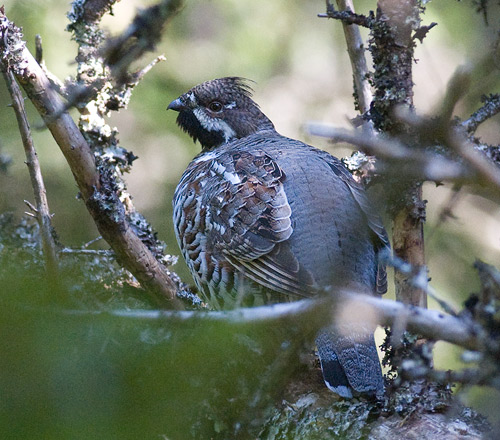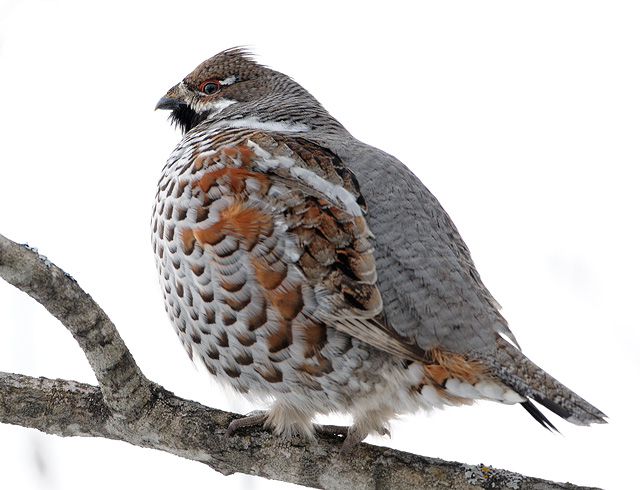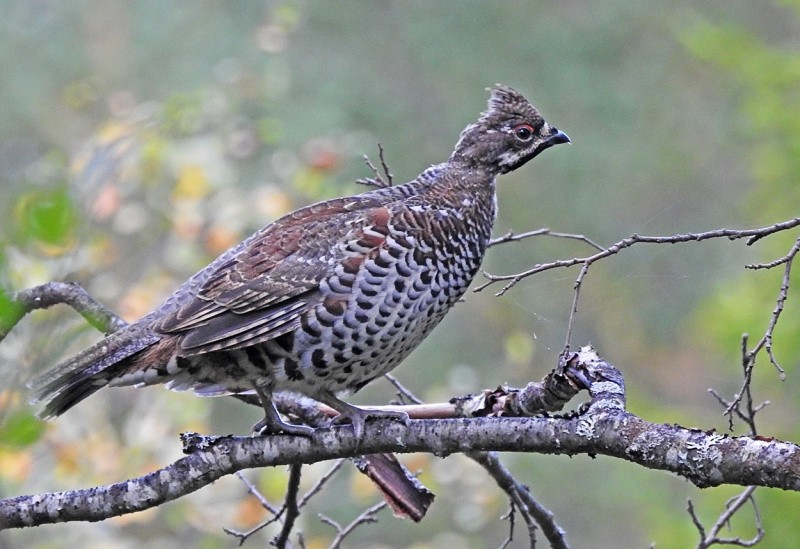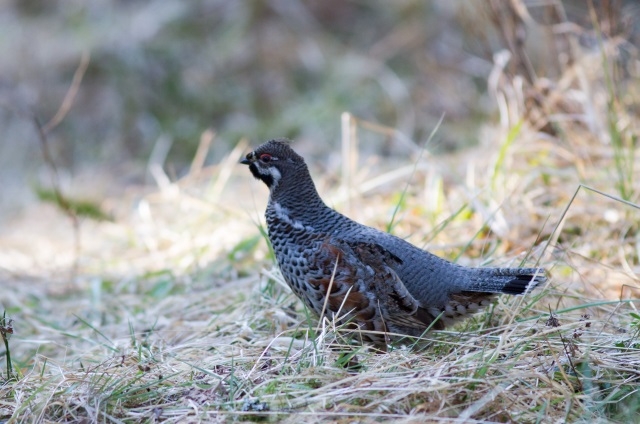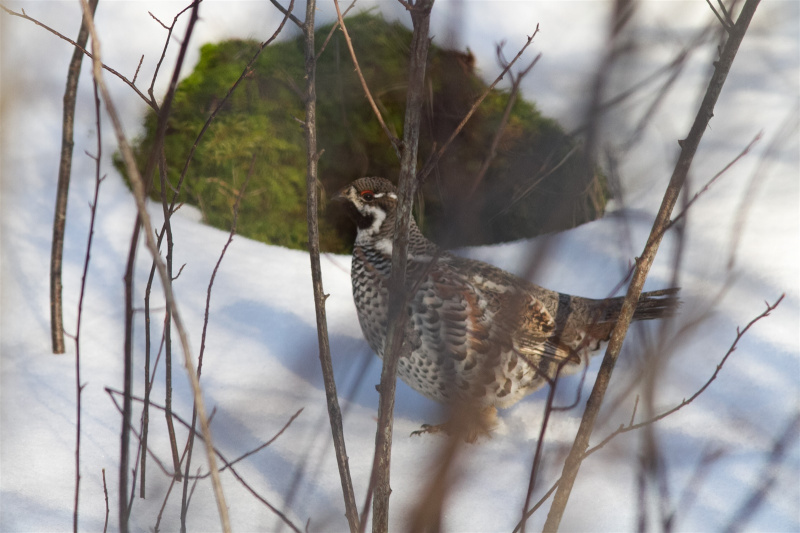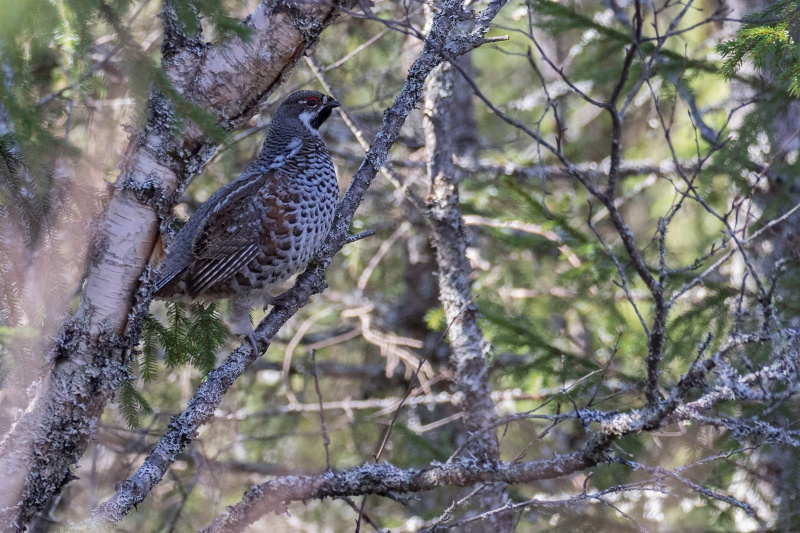Ferruginous Duck (Aythya nyroca)
Hazel Grouse (Tetrastes bonasia)
Shape resembles both diving and dabbling ducks. Characteristic head profile with long bill, long sloping forehead and rather high rear crown (not unlike Pochard). White undertail usually visible also when on the water. Broad, white wing-bars and white underwing conspicous in flight. White undertail separated from white belly by brown band. Male with shining white eyes. Female with brown eye and less bright rufous tones to plumage. Immature similar to female, but with even less rufous. Immatures told from immature Pochard by by darker back, no facial markings and white (not grey) wing-bars. Note that Tufted Duck sometimes have white (but more diffuse) undertail. Beware also of hybrids with Pochard (note bill-pattern).
Sound:Female call similar to female Tufted Duck's "kerr kerr", but thinner and with a strong, peculiar bi-tone. Male display call mostly consists of various short "chk" sounds.
Female:
Distribution:
Xeno-canto: map
Ecology:Birdlife ecology
Links:
Observation.org Latest observations
Image search Flickr NB! May give other species
CCCC-sound:Jarek Matusiak, Licence,Link.
CC-photo:Linton Snapper, Licence,Link.
CC-photo:Radovan Václav, Licence,Link.
CC-photo:darwin_initiative, Licence,Link.
Easily overlooked, secretive grouse. Small and compact, with small head and rounded body. Upper parts grey, wings speckled in brown. Tail grey with broad black terminal band. Male with short crest, contrasting black throat patch and generally brighter coloured than female.
Sound:Song an extremely high pitched whistle; "piuuuuuuuiiii pju pju pju". Start-note typically sustained, first descending then ascending and descending again. Often followed by three short conclusive "pju, pju pju". Warning call of female a bubbling thrill.
Male song:
Distribution:
Wikipedia: map (se also Xeno-canto below)
Ecology:Birdlife ecology
Links:
Observation.org Latest observations
Image search Flickr NB! May give other species
CCCC-photo:ressaure, Licence,Link,

 English
English Albanian
Albanian
 Armenian
Armenian
 Bulgarian
Bulgarian
 Catalan
Catalan
 Croatian
Croatian
 Czech
Czech
 Danish
Danish
 Dutch
Dutch
 Finnish
Finnish
 French
French
 Georgian
Georgian
 German
German
 Greek
Greek
 Hungarian
Hungarian
 Italian
Italian
 Latvian
Latvian
 Lithuanian
Lithuanian
 Macedonian
Macedonian
 Norwegian
Norwegian
 Polish
Polish
 Portuguese
Portuguese
 Romanian
Romanian
 Russian
Russian
 Sami : Lule sami
Sami : Lule sami
 Sami : North sami
Sami : North sami
 Sami : South sami
Sami : South sami
 Scientific names
Scientific names
 Serbian
Serbian
 Spanish
Spanish
 Swedish
Swedish
 Ukrainian
Ukrainian


